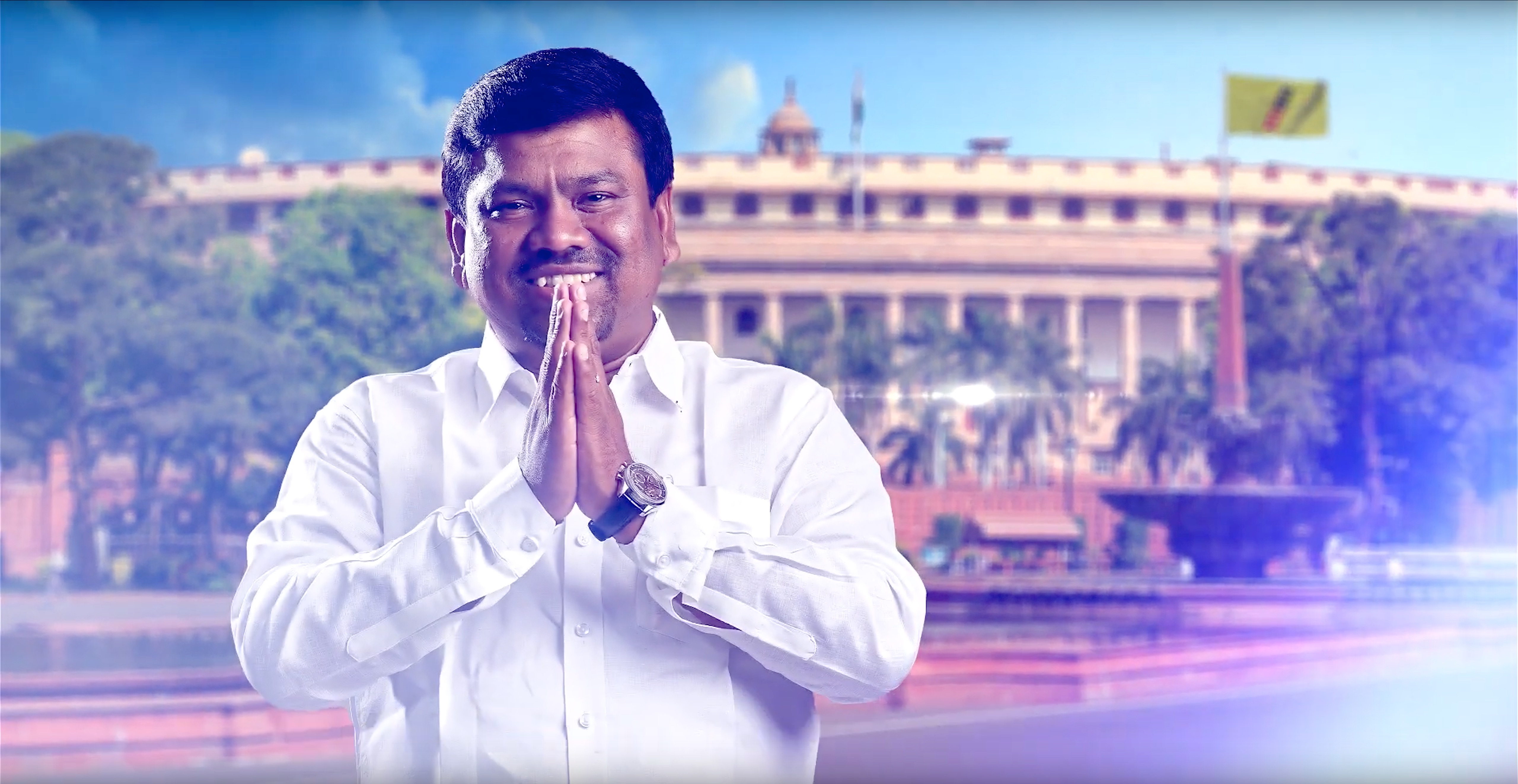
In Rameswaram, South's Varanasi, Iftar strengthens community bonding
By voting for IUML's K Navaskani, the people of Ramanathapuram have perhaps chosen hope over fear and unity over division, unlike Varanasi.

The brilliance of Indian democracy is exhibited in the 2019 general elections in myriad ways. This story may illustrate the amazing social fabric of our republic. While the Hindu holy city of Varanasi chose Prime Minister Narendra Modi as its representative to the Parliament, its southern counterpart Ramanathapuram (Rameswaram in this parliamentary constituency is venerated by Hindus as the southern Varanasi) chose 39-year-old entrepreneur K Navaskani, a Tamil-speaking Muslim and a native of the constituency (he hails from Kuruvadi village), as its MP.
Indian Union Muslim League (IUML)’s Navaskani won by a margin of 1,27, 122 votes against his nearest rival Nainar Nagenthran of the BJP, which fought the Lok Sabha elections in an alliance with the ruling AIADMK among others in Tamil Nadu.
A self-built man
I was an accidental visitor to an iftar party (routine of breaking the fast during the holy month of Ramadan) where I met Navaskani. He is unassuming and smiles at everyone who comes his way. As he started thanking the people of Ramanathapuram at the event, I realised that I had heard him speak at an entrepreneurs’ conference six months earlier. He narrated Somerset Maugham’s ‘The Verger’ to explain his own rise as an entrepreneur.
In that story, the verger of a church loses his job because he can neither read nor write. The verger goes on to build a business and amass a fortune of £30,000 in a short span of time. The story ends on a sarcastic note that had he been able to read and write, he would have continued as a verger in the church.
At the iftar party, I wished Navaskani and said I liked the story he narrated at the entrepreneurs’ meet. He responded with a broader smile. Then came the porridge (rice gruel kanji) and pudding (made from seaweed) to break the fast.
Navaskani, along with his brothers Ansari and Sirajudeen, runs ST Courier and ST Travels; S stands for ‘safe’ and T stands for ‘trust’. His business empire is built from scratch since 2007 and employs over 13,000 people now. He relied on the narrative of development for the economically backward Ramanathapuram district during his campaign. His public speaking skills have improved over the past year as I could decipher from his YouTube videos.
DMK supports the ‘ladder’
He met almost every voter in the constituency over 40 days of intense campaigning. “I could not sleep properly during the campaign period; but the love of people kept me going,” says Navaskani. He created the courier and travel businesses from the overseas-dependent fellow citizens in the district. Young men from all communities in the district resort to job overseas as enough jobs could not be created locally in the water-starved and industry-starved southern district of Tamil Nadu.
I met Mohamed Zakkariya, a publisher, who has worked with the voters for the success of Navaskani for over 15 days in the build-up to the April 18 parliamentary elections. “It is the DMK president MK Stalin’s instructions to his party office bearers that ensured the victory of Navaskani,” says Zakkariya. After Stalin’s direct intervention, DMK’s senior leaders Pon Muthuramalingam, Raghupathy, RS Raja Kannappan, and Thangam Thennarasu worked hard to win the trust of the people for Navaskani, who fought the elections on a lesser known ‘ladder’ symbol.
“We visited the homes of konar people (the Tamil equivalent of yadavs); they had the image of Lord Krishna displayed at each home,” explains Zakkariya. “Women in these homes told us that they know we have come to seek votes for the ladder symbol; they promised us that they will vote for it. They added that Kannappan mama (uncle) has already asked them to vote for the ladder.”
Raja Kannappan, a minister in Jayalalithaa’s 1991-96 cabinet, expressed support to the DMK ahead of the 2019 general elections. I vividly recall regular conversations in Chennai between a Muslim senior citizen and a gounder community senior citizen greeting each other as ‘Mama’. This reference takes me back to an Iftaar party hosted by MDMK general secretary Vaiko where every Muslim guest addressed Vaiko as ‘Mama’. Such bonhomie and warmth is sustained traditionally by community get-togethers such as iftar.
I think the tradition of Iftar is not just about understanding the cuisine and religious traditions of fellow Muslims, it is also about appreciating the values of shared compassion. Navaskani chose an Iftar function to showcase his gratitude to senior DMK leaders such as Thennarasu, Raghupathy and others who made the electoral victory possible.
“It is the Hindus who elected you; you should be the first person to participate in their family events in your constituency,” says Zakkariya while greeting Navaskani at the Iftar. Navaskani nodded, appreciating the suggestion from Zakkariya. Every Pongal and Deepavali, the sweets and savouries prepared by Hindu households reach Muslim neighbours and every Eid, the food prepared in Muslim homes reach their Hindu neighbours.
This historical routine in the state of Tamil Nadu seems like a mind-blowing affair now given the hate-filled narrative in some other parts of the country. The people of Ramanathapuram have perhaps chosen hope over fear and unity over division.
(Peer Mohamed is Founder and CEO of ippodhu.com)


